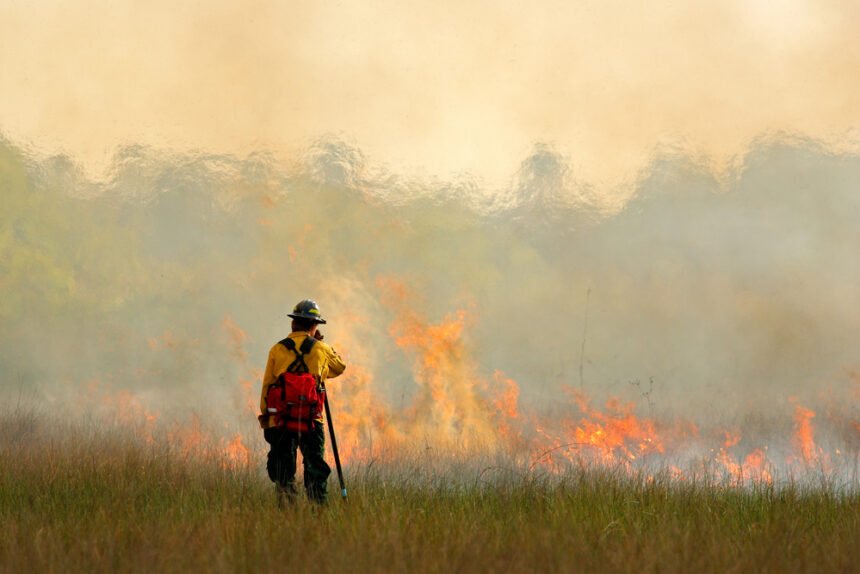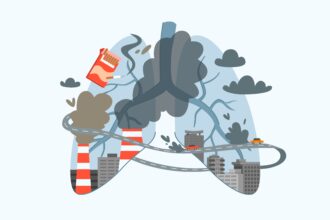Few people would argue that wildfires are good for the communities they affect. Everyone’s aware that these blazes are dangerous, but they may not understand just how destructive they can be. The health impacts of wildfires may be more severe and far-reaching than people realize.
The flames are not the only danger that wildfires in the western U.S. present. These fires produce a substantial amount of heat and smoke, which can endanger people’s health. These health risks can also spread far beyond the flames themselves.
Here’s a closer look at what these risks are and how they appear.
Poor Air Quality
Wildfire smoke contains two primary pollutants: carbon monoxide and particulate matter, a mixture of microscopic particles. While carbon monoxide may only present a threat to those near the fire, particulates can spread for miles. Smoke from Siberian wildfires has reached as far as Alaska, moving across the Pacific Ocean.
These particulates and gasses, even miles away, can wreak havoc on people’s lungs. When they enter the lungs, they can make it harder to breathe, cause bronchitis and aggravate symptoms of asthma and heart disease. The increased heat from the fires can make these already adverse effects even more severe.
Smoke-related health problems can be long-lasting, too, especially in younger populations. Studies suggest that early wildfire smoke exposure can inhibit lung development and affect the immune system. Smoke from some types of plants, like pine trees, could lead to cancer as well.
Cycles of Wildfires and Greenhouse Gasses
The health impacts of wildfires can be even more long-lasting and far-reaching than these disease developments. These fires can generate gasses like methane, sulfur dioxide, carbon dioxide and ozone. These are some of the same pollutants that the Environmental Protection Agency (EPA) regulates in businesses because of how they contribute to climate change.
As more of these greenhouse gasses enter the atmosphere, they worsen air quality and raise temperatures. Over time, this makes the area even more susceptible to wildfires and exacerbates the effects of future ones. The result is a cycle of worsening conditions, making the health effects of these fires more and more extreme.
The U.S. National Climate Assessment says that climate change could triple the frequency of large wildfires in the future. More fires mean more heart and lung problems, taking the long-term health effects of wildfires to new extremes.
Wildfire Smoke and COVID-19
Since these fires are occurring during a lung disease pandemic, they could further increase health risks. As smoke weakens people’s lungs, it could put them at greater risk of COVID-19. When people’s immune systems are already fighting smoke-related pollutants, they may not be able to handle a virus.
Wildfire smoke makes people more likely to contract the virus, and it also can make it deadlier. One study found that even a minute increase in particulates can cause an 8% increase in mortality rates from COVID-19. Conversely, as more people contract COVID-19, it could make them more susceptible to lung damage from smoke.
While more people are wearing masks because of COVID-19, not all of them protect against smoke. Some people could develop false confidence about their masks and venture outside on high-smoke days, putting themselves at risk.
Wildfires Damage More Than Just the Environment
Wildfires present a significant risk to their environments and people living in neighboring cities. Not all of these dangers come from the flames, though, and people may not realize how severe the health risks can be. On top of burning surrounding areas, these fires can create far-reaching and lasting health problems from their smoke and heat.
As these fires continue, educating the public and local officials about these risks is essential. Researchers are only just beginning to understand the long-term health impacts of wildfires, but they do know they’re a serious threat.










